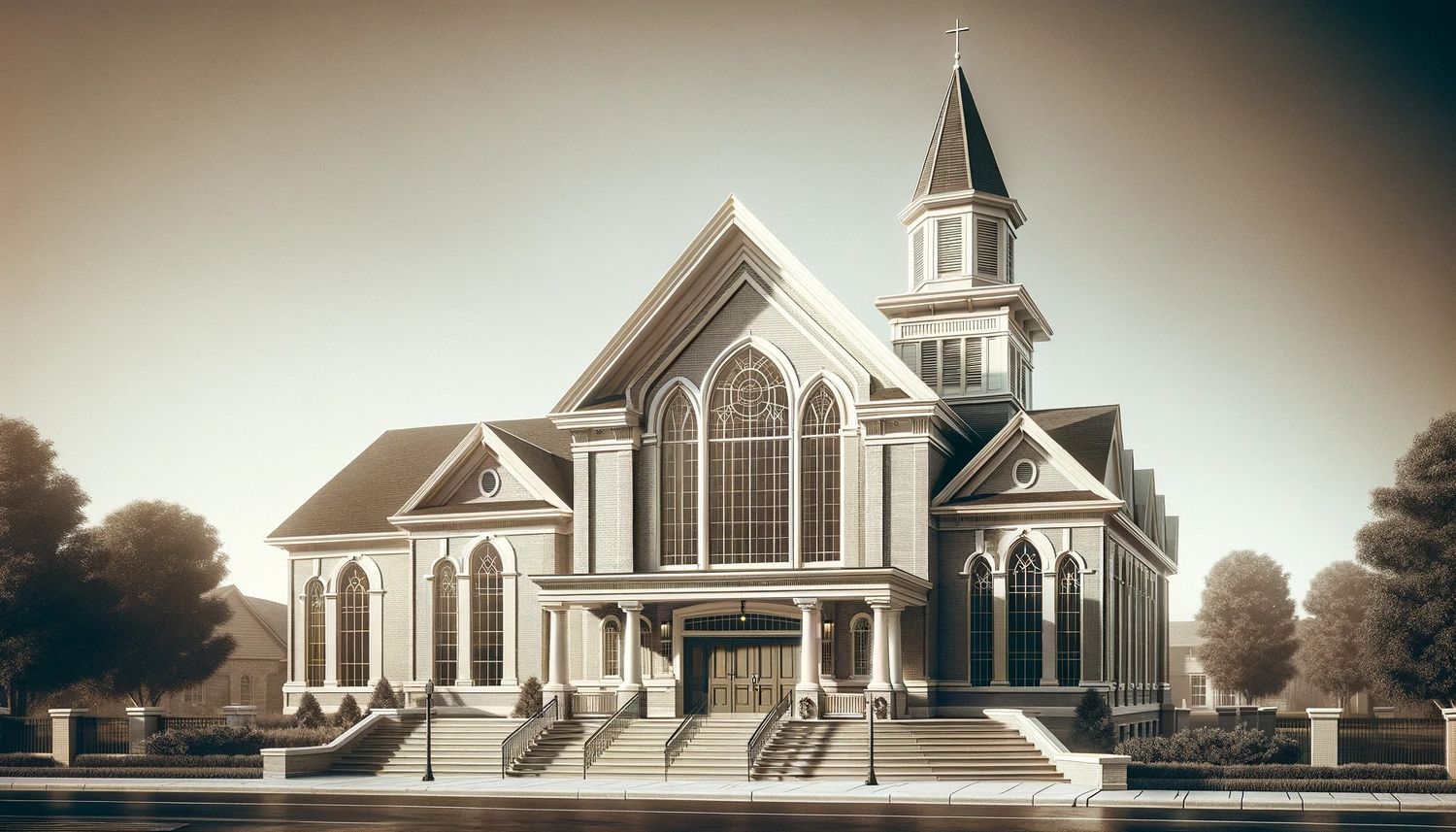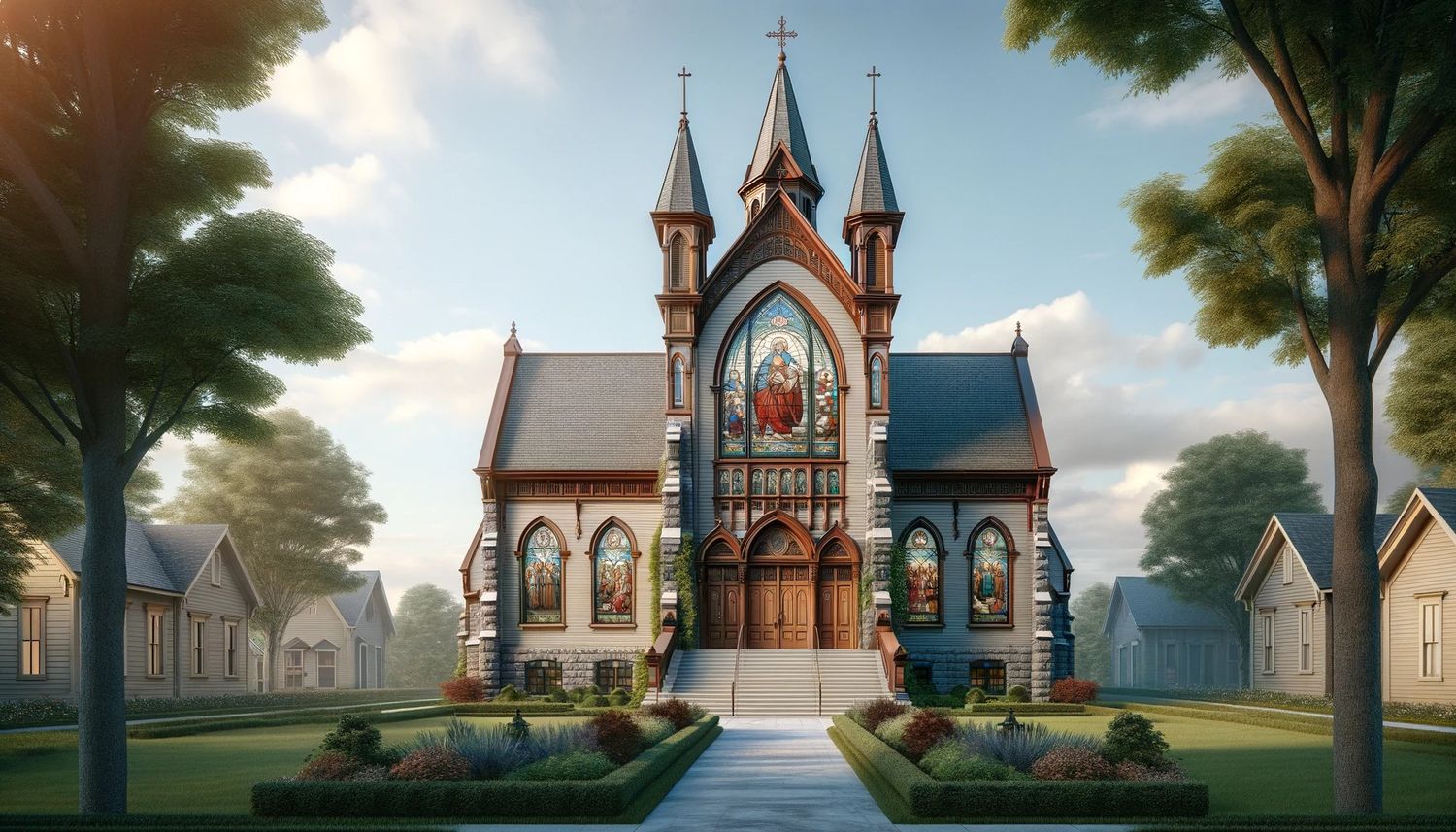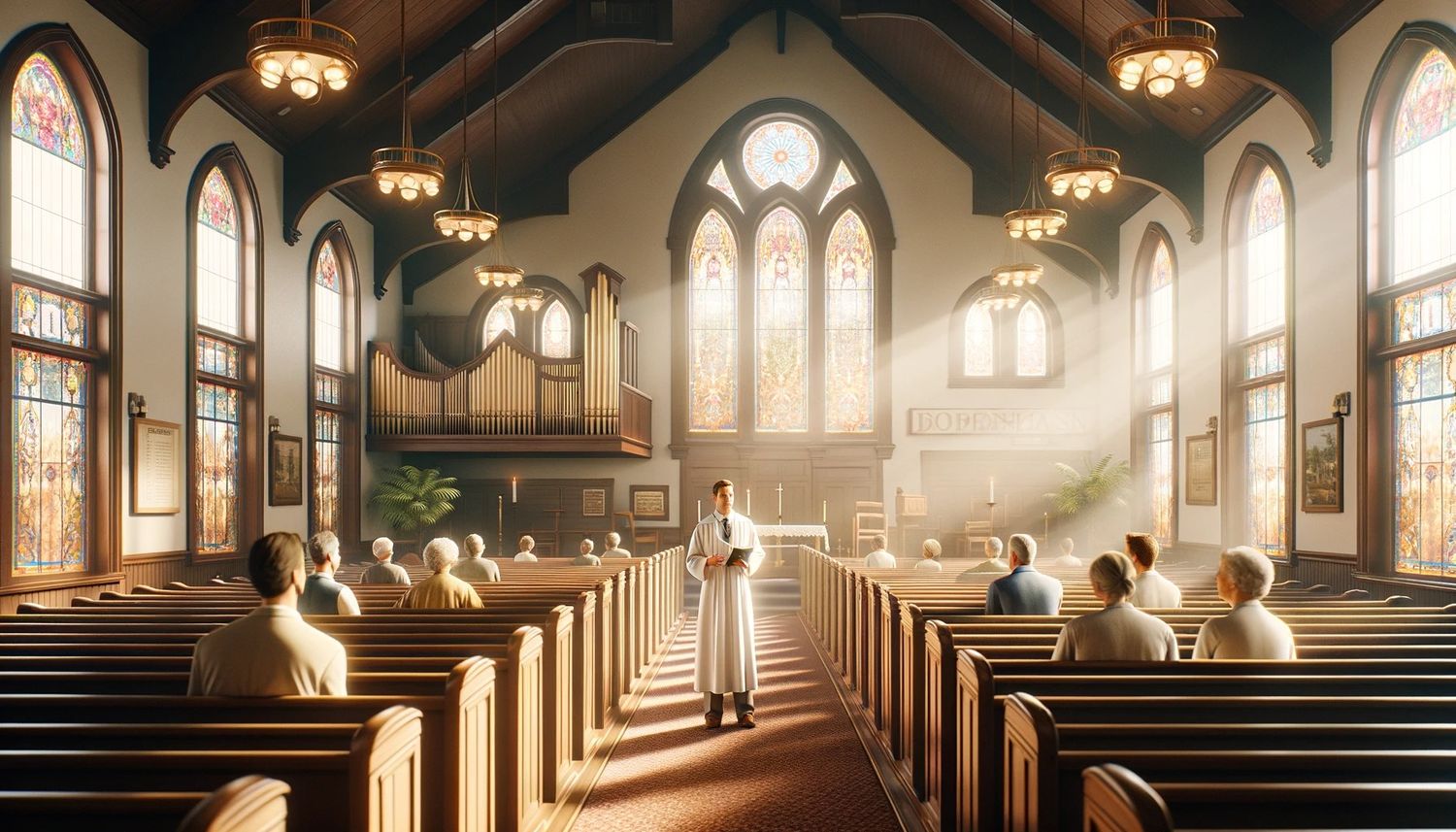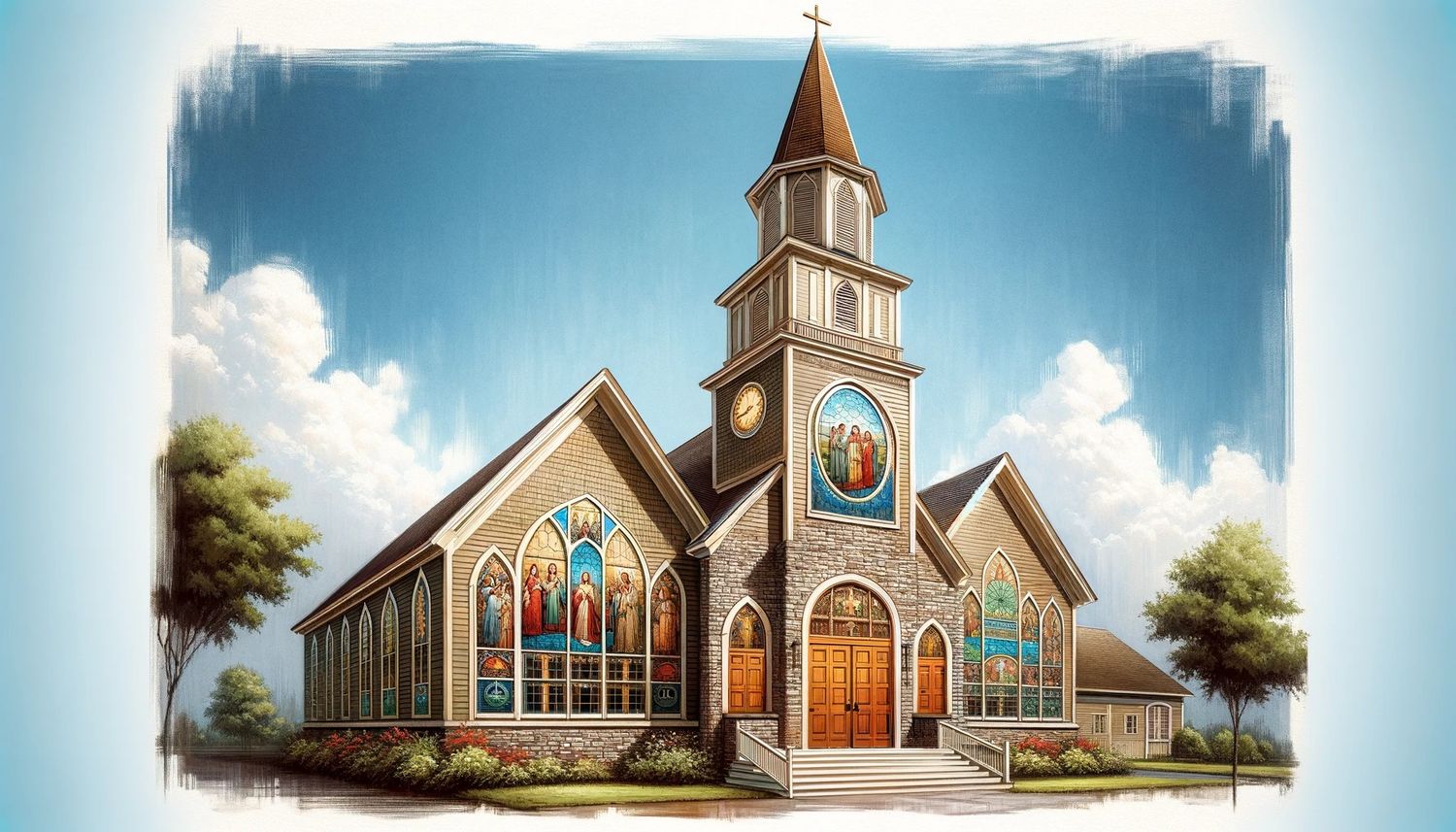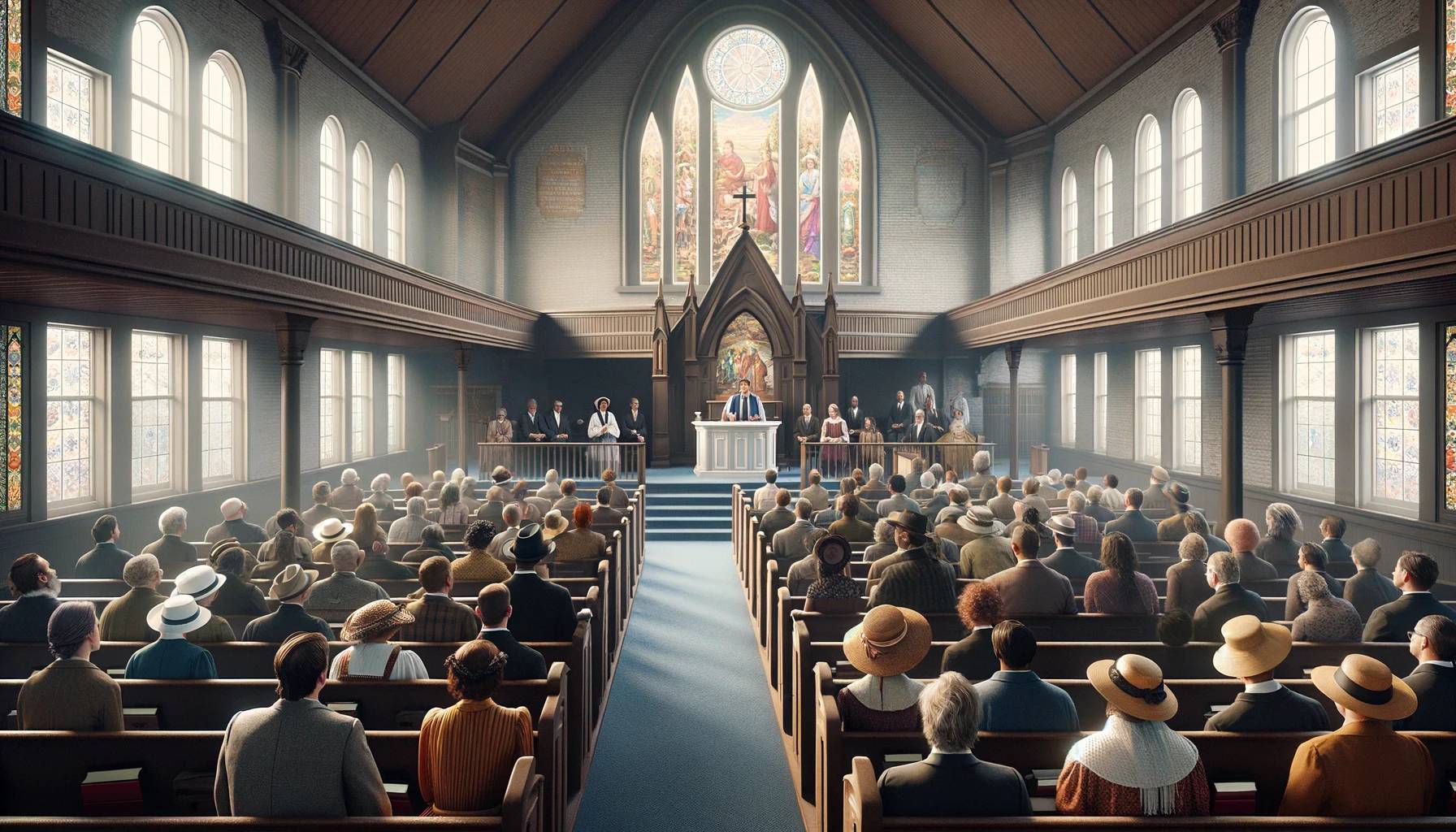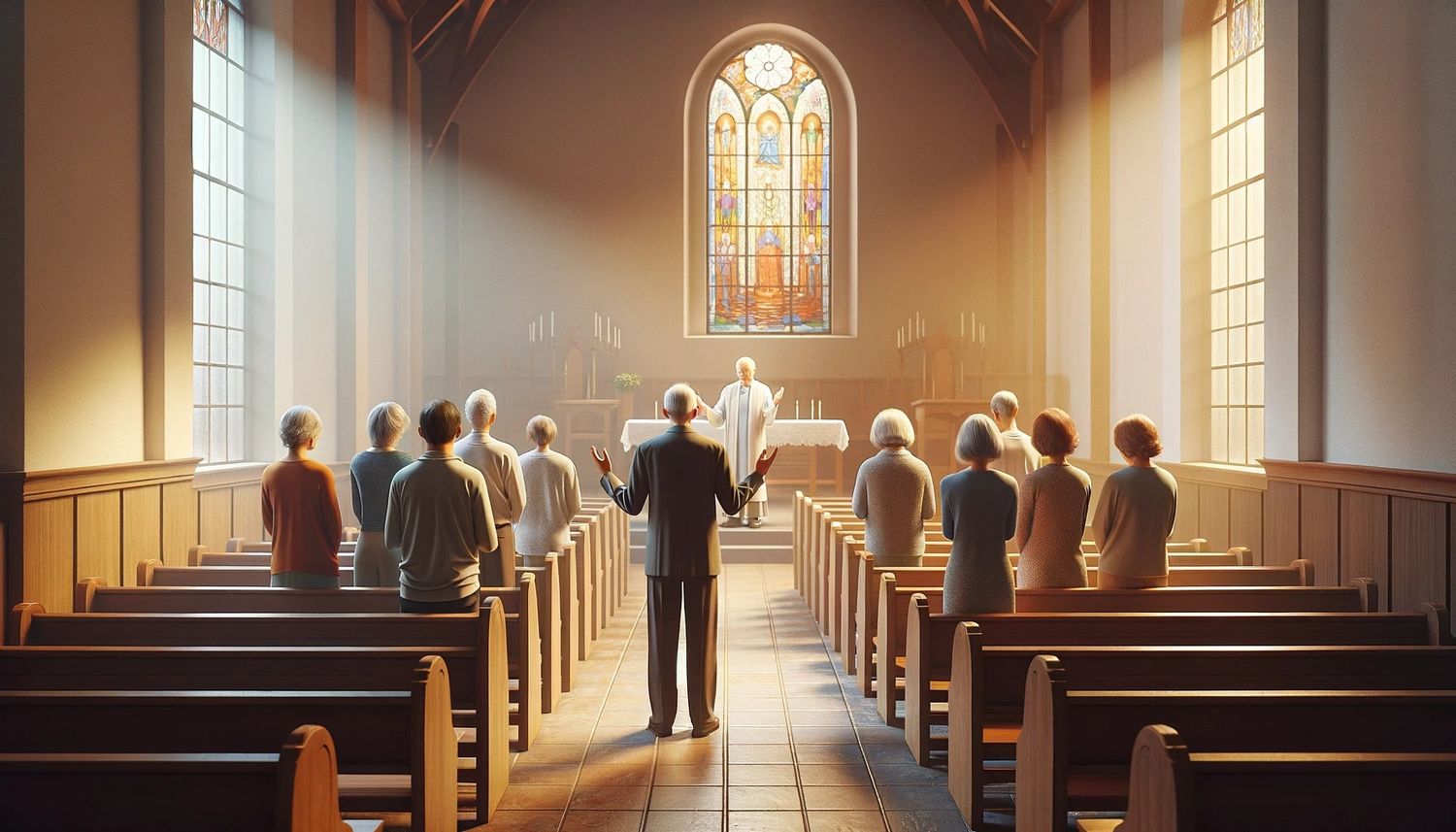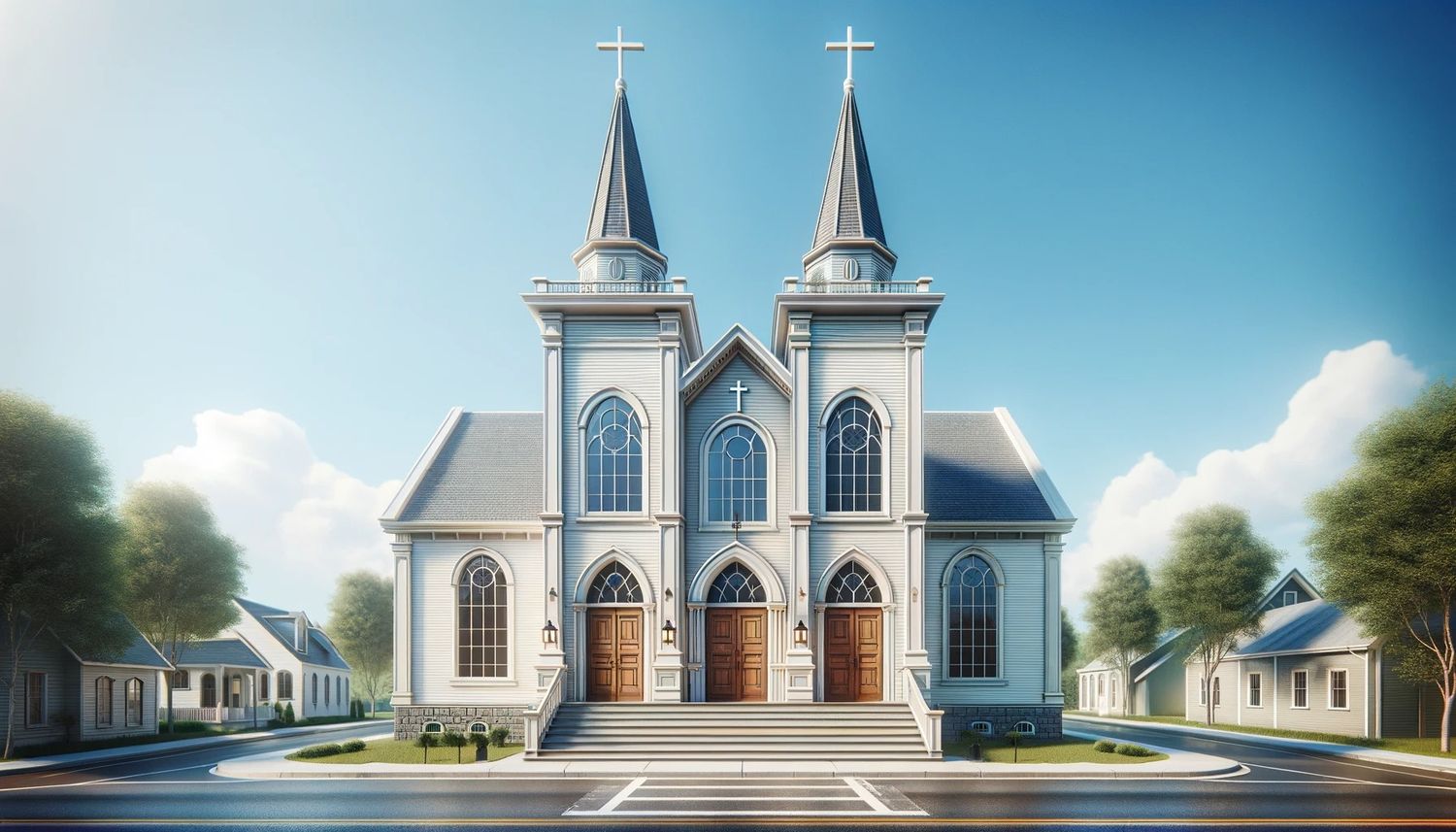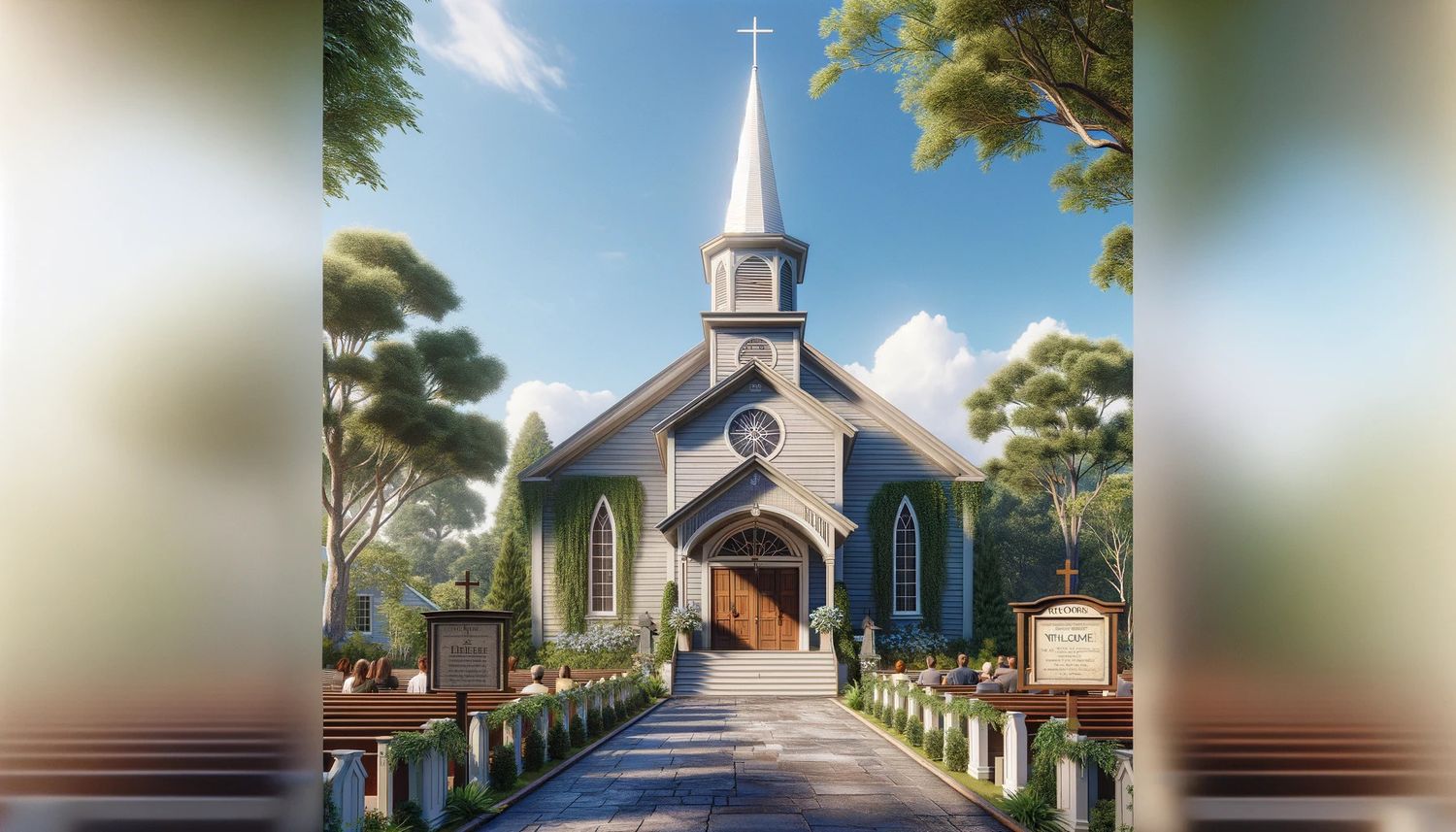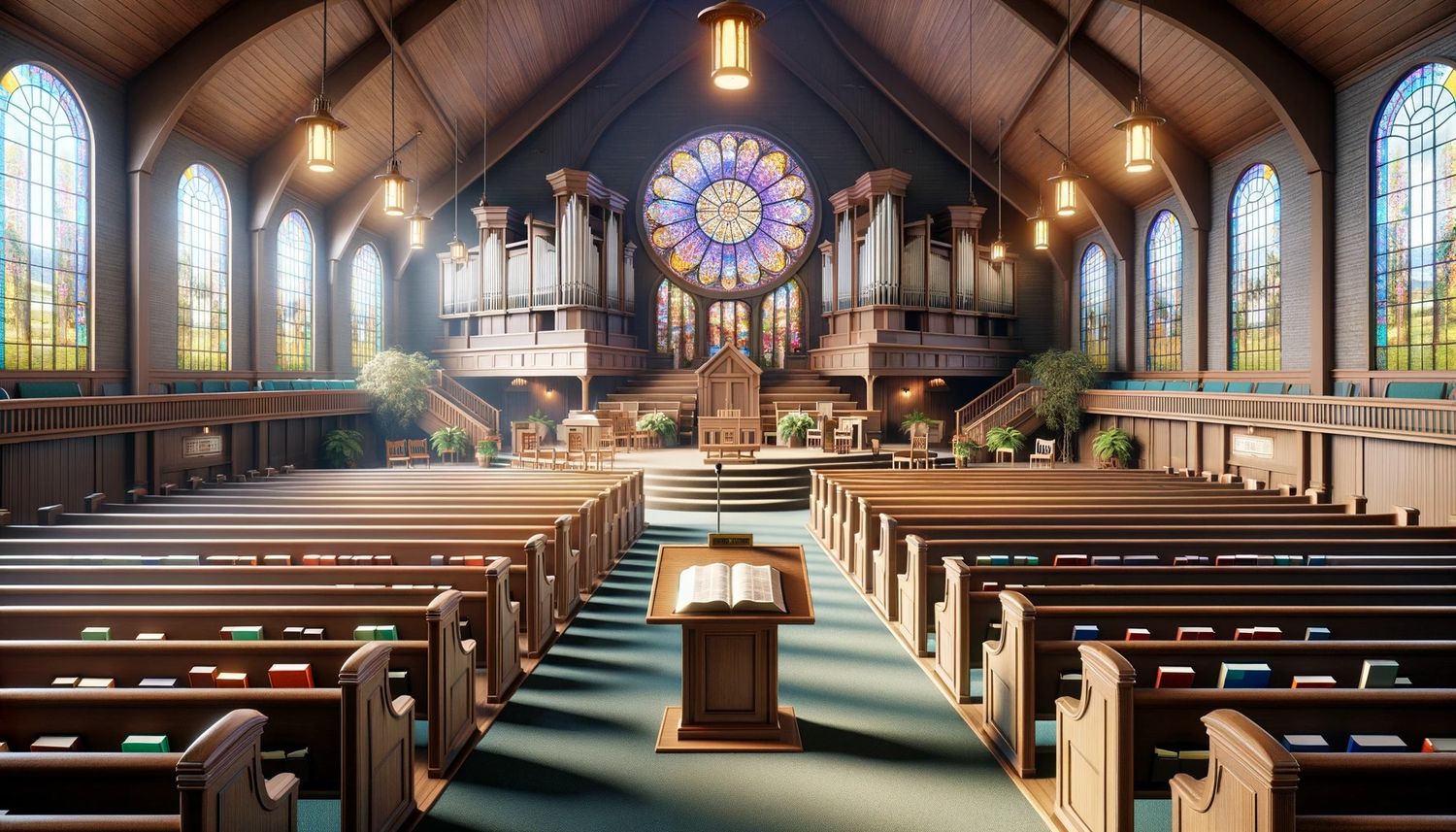Home>Theology and Spirituality>What Is The Verity Baptist Church Hate Group


Theology and Spirituality
What Is The Verity Baptist Church Hate Group
Published: February 20, 2024
Peter Smith, Editorial Director at Christian.net, combines deep insights into faith, politics, and culture to lead content creation that resonates widely. Awarded for his contributions to religious discourse, he previously headed a major organization for religious communicators, enhancing dialogue on faith's societal impacts.
Discover the truth about Verity Baptist Church and their controversial beliefs. Learn about the theology and spirituality behind this alleged hate group.
(Many of the links in this article redirect to a specific reviewed product. Your purchase of these products through affiliate links helps to generate commission for Christian.net, at no extra cost. Learn more)
Table of Contents
Introduction
The Verity Baptist Church has garnered significant attention and sparked intense debate due to its controversial statements and actions, leading to widespread accusations of being a hate group. This religious organization, based in Sacramento, California, has been at the center of contentious discussions surrounding its teachings and public proclamations. The church's outspoken leader, Pastor Roger Jimenez, has been a polarizing figure, drawing both fervent support and vehement opposition.
The Verity Baptist Church's notoriety stems from its stance on various social and moral issues, which has ignited fervent reactions from individuals and groups across the ideological spectrum. The church's teachings and public declarations have been scrutinized and condemned by many, leading to allegations of promoting hate speech and discriminatory attitudes.
As we delve into the history, controversies, and responses associated with the Verity Baptist Church, it becomes evident that the organization has become a lightning rod for heated discussions on matters of faith, morality, and societal values. The fervor surrounding the church's activities and pronouncements has underscored the deep-seated divisions within society and the complexities of navigating religious freedom, freedom of speech, and the boundaries of acceptable discourse.
The Verity Baptist Church's impact extends beyond its physical location, as its influence and reach have reverberated across various media platforms and public forums. The church's public image and the perceptions of its teachings have become subjects of intense scrutiny, prompting a broader conversation about the intersection of religious beliefs, social responsibility, and the boundaries of acceptable rhetoric.
In the subsequent sections, we will explore the history of the Verity Baptist Church, delve into the controversies surrounding its statements and actions, examine the responses from the church's leadership, and analyze the criticisms and accusations leveled against it. Through this exploration, we aim to provide a comprehensive understanding of the multifaceted issues surrounding the Verity Baptist Church and the complex dynamics at play in the broader societal discourse.
Read more: Why Do Baptist Hate Catholic
History of Verity Baptist Church
The Verity Baptist Church was established in Sacramento, California, with a mission to uphold traditional Christian values and teachings. Founded by Pastor Roger Jimenez, the church initially operated with a focus on evangelical outreach and community engagement. Over time, the church gained a following among individuals seeking a conservative and doctrinally orthodox approach to Christianity.
The church's early years were marked by a commitment to traditional biblical interpretations and a strong emphasis on evangelism and discipleship. As the congregation grew, the church expanded its outreach efforts, engaging in various community initiatives and charitable endeavors.
However, the trajectory of the Verity Baptist Church took a controversial turn when Pastor Roger Jimenez began making public statements that ignited widespread debate and condemnation. In 2016, following the tragic mass shooting at the Pulse nightclub in Orlando, Florida, Pastor Jimenez delivered a sermon in which he expressed provocative and incendiary views regarding the LGBTQ+ community. His remarks, which included statements perceived as advocating violence and intolerance, sparked outrage and led to widespread condemnation from diverse quarters.
The fallout from Pastor Jimenez's controversial sermon catapulted the Verity Baptist Church into the national spotlight, drawing intense scrutiny and criticism. The church's teachings and public proclamations became the subject of heated debates, with many condemning the rhetoric as inflammatory and discriminatory.
Despite facing significant backlash and condemnation, the Verity Baptist Church continued to espouse its conservative theological positions and remained steadfast in its adherence to traditional Christian doctrines. The church's unwavering stance on contentious social and moral issues further fueled the controversy surrounding its teachings and public image.
The history of the Verity Baptist Church is characterized by a trajectory marked by fervent evangelism, community engagement, and, more recently, intense controversy and public scrutiny. The church's evolution from a local congregation to a lightning rod for national debates underscores the complexities of navigating religious expression, societal values, and the boundaries of acceptable discourse.
The subsequent sections will delve deeper into the controversies, responses, and criticisms associated with the Verity Baptist Church, providing a comprehensive examination of the multifaceted issues surrounding this polarizing religious organization.
Controversial Statements and Actions
The Verity Baptist Church has been embroiled in controversy due to the incendiary statements and actions of its leader, Pastor Roger Jimenez. The church gained widespread attention following Pastor Jimenez's sermon in 2016, delivered in the aftermath of the tragic mass shooting at the Pulse nightclub in Orlando, Florida. During the sermon, Pastor Jimenez expressed vehement and inflammatory views regarding the LGBTQ+ community, sparking outrage and condemnation.
The sermon, which was widely disseminated through various media channels, featured Pastor Jimenez advocating intolerant and discriminatory attitudes towards the LGBTQ+ community. His remarks were perceived as promoting violence and hostility, leading to widespread backlash and condemnation from individuals and organizations across the ideological spectrum.
The controversial nature of Pastor Jimenez's statements extended beyond the LGBTQ+ community, encompassing contentious views on gender identity, feminism, and other social issues. His public proclamations, characterized by their confrontational and divisive nature, further fueled the fervor surrounding the Verity Baptist Church and its teachings.
In addition to his verbal declarations, Pastor Jimenez's actions and public engagements have contributed to the church's contentious reputation. His participation in public demonstrations and events, often espousing polarizing viewpoints, has intensified the scrutiny and criticism directed at the Verity Baptist Church.
The church's stance on various social and moral issues, as articulated by Pastor Jimenez, has been a source of deep-seated division and controversy. The fervent reactions and condemnations stemming from the church's statements and actions have underscored the complexities of navigating religious expression, freedom of speech, and societal values.
The Verity Baptist Church's controversial statements and actions have reverberated far beyond its physical location, sparking nationwide debates and prompting soul-searching discussions on the boundaries of acceptable discourse and the responsibilities of religious leaders in shaping public perceptions.
The subsequent sections will delve into the responses from the Verity Baptist Church, the criticisms and accusations leveled against it, and the broader implications of its controversial stance, providing a comprehensive understanding of the multifaceted issues surrounding this polarizing religious organization.
Response from Verity Baptist Church
In response to the intense scrutiny and widespread condemnation stemming from the controversial statements and actions of its leader, Pastor Roger Jimenez, the Verity Baptist Church has remained resolute in its adherence to conservative theological positions. The church's leadership, including Pastor Jimenez, has consistently defended its teachings and public proclamations, portraying them as a steadfast commitment to traditional Christian doctrines.
Amid the fervent backlash and allegations of promoting hate speech and discriminatory attitudes, the Verity Baptist Church has maintained that its expressions are rooted in deeply held religious convictions and a dedication to upholding what it perceives as biblical truths. The church's response to the criticisms has been characterized by a steadfast refusal to retract or apologize for its controversial statements, further entrenching its position in the face of widespread condemnation.
Additionally, the church has emphasized its commitment to evangelism and outreach, framing its contentious rhetoric as an integral aspect of its mission to uphold traditional Christian values and engage in unapologetic proclamation of its beliefs. This unyielding stance has only served to deepen the divisions and controversies surrounding the Verity Baptist Church, as its responses have been met with continued scrutiny and condemnation from various quarters.
Furthermore, the church's leadership has utilized various platforms to disseminate its responses, leveraging social media, public statements, and sermons to articulate its perspectives and defend its contentious positions. This proactive approach to addressing the criticisms and accusations has contributed to the perpetuation of the intense debates and public discourse surrounding the Verity Baptist Church.
The church's response to the widespread allegations of promoting hate speech and intolerance has underscored the complexities of navigating religious expression, freedom of speech, and societal values. The Verity Baptist Church's unwavering commitment to its controversial teachings and public proclamations has positioned it at the center of contentious national debates, prompting introspection and soul-searching discussions on the responsibilities of religious institutions and leaders in shaping public perceptions.
As the Verity Baptist Church continues to navigate the fallout from its controversial statements and actions, its responses remain a focal point of intense scrutiny and debate, reflecting the deep-seated divisions and complexities inherent in the intersection of religious beliefs, social responsibility, and the boundaries of acceptable rhetoric.
Criticism and Accusations of Hate Group
The Verity Baptist Church has faced vehement criticism and widespread accusations of being a hate group, stemming from the controversial statements and actions of its leader, Pastor Roger Jimenez. The church's teachings and public proclamations, particularly regarding the LGBTQ+ community, have sparked intense condemnation from diverse quarters, leading to allegations of promoting hate speech and fostering discriminatory attitudes.
Critics and advocacy groups have vehemently denounced the church's rhetoric, citing its inflammatory and confrontational nature as a catalyst for promoting hostility and intolerance. The fervent reactions to Pastor Jimenez's public declarations have underscored the deep-seated divisions and societal repercussions of the church's controversial stance on social and moral issues.
The accusations of being a hate group have reverberated far beyond the confines of the Verity Baptist Church, prompting national debates and soul-searching discussions on the boundaries of acceptable discourse and the responsibilities of religious institutions in shaping public perceptions. The church's steadfast refusal to retract or apologize for its contentious statements has further fueled the criticisms and reinforced the perceptions of intolerance and discrimination.
Moreover, the allegations of promoting hate speech have prompted introspection and scrutiny of the broader societal implications of the church's teachings and public image. The Verity Baptist Church's polarizing reputation has positioned it at the center of contentious national debates, highlighting the complexities of navigating religious expression, freedom of speech, and societal values.
The criticisms and accusations of being a hate group have elicited impassioned responses from individuals, organizations, and public figures, reflecting the profound impact of the church's controversial rhetoric on public discourse and perceptions. The intense scrutiny and condemnation directed at the Verity Baptist Church have underscored the complexities of reconciling religious beliefs with social responsibility and the boundaries of acceptable rhetoric in a diverse and pluralistic society.
As the church continues to grapple with the fallout from the allegations of being a hate group, the fervor surrounding its teachings and public proclamations remains a focal point of national conversations, prompting critical reflections on the intersections of faith, morality, and the societal impact of religious institutions.
The Verity Baptist Church's enduring notoriety as a lightning rod for intense criticisms and accusations of being a hate group reflects the profound challenges inherent in navigating the complexities of religious expression, societal values, and the responsibilities of religious leaders in shaping public perceptions.
Read more: What Are Baptist Churches
Conclusion
The Verity Baptist Church's journey from a local congregation to a focal point of national debates underscores the profound complexities inherent in navigating religious expression, societal values, and the responsibilities of religious institutions and leaders in shaping public perceptions. The church's controversial statements and actions, particularly those of its leader, Pastor Roger Jimenez, have ignited fervent reactions, prompting intense scrutiny and condemnation from diverse quarters.
The fervor surrounding the Verity Baptist Church has prompted critical reflections on the boundaries of acceptable discourse, the intersections of faith and social responsibility, and the broader implications of religious teachings on public perceptions. The church's steadfast adherence to its controversial positions, despite widespread criticisms and accusations of promoting hate speech, has deepened the divisions and controversies surrounding its teachings and public image.
As the Verity Baptist Church continues to grapple with the fallout from its contentious rhetoric, its enduring notoriety as a lightning rod for intense criticisms and accusations reflects the profound challenges inherent in reconciling religious beliefs with societal values. The church's responses, criticisms, and the broader societal impact of its teachings have underscored the complexities of navigating religious expression, freedom of speech, and the responsibilities of religious leaders in shaping public perceptions.
The controversies surrounding the Verity Baptist Church serve as a poignant reminder of the intricate dynamics at play in the intersection of faith, morality, and the societal impact of religious institutions. The intense debates and soul-searching discussions prompted by the church's teachings and public proclamations highlight the profound influence of religious expression on public discourse and the complexities of fostering understanding and tolerance in a diverse and pluralistic society.
In conclusion, the Verity Baptist Church's notoriety as a lightning rod for intense criticisms and accusations of promoting hate speech reflects the profound challenges inherent in navigating the complexities of religious expression, societal values, and the responsibilities of religious leaders in shaping public perceptions. The church's enduring impact on national conversations underscores the profound influence of religious teachings on public discourse and the complexities of reconciling faith, morality, and social responsibility in a diverse and pluralistic society.


